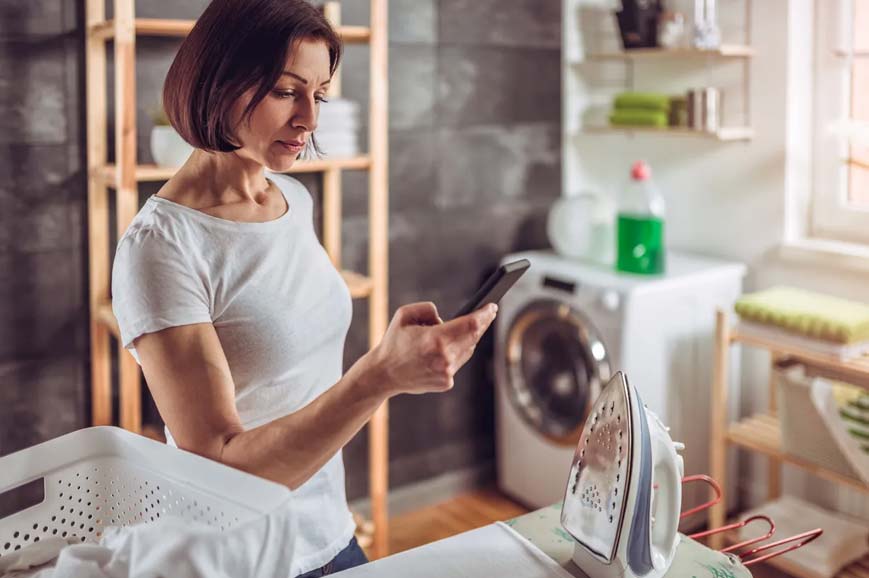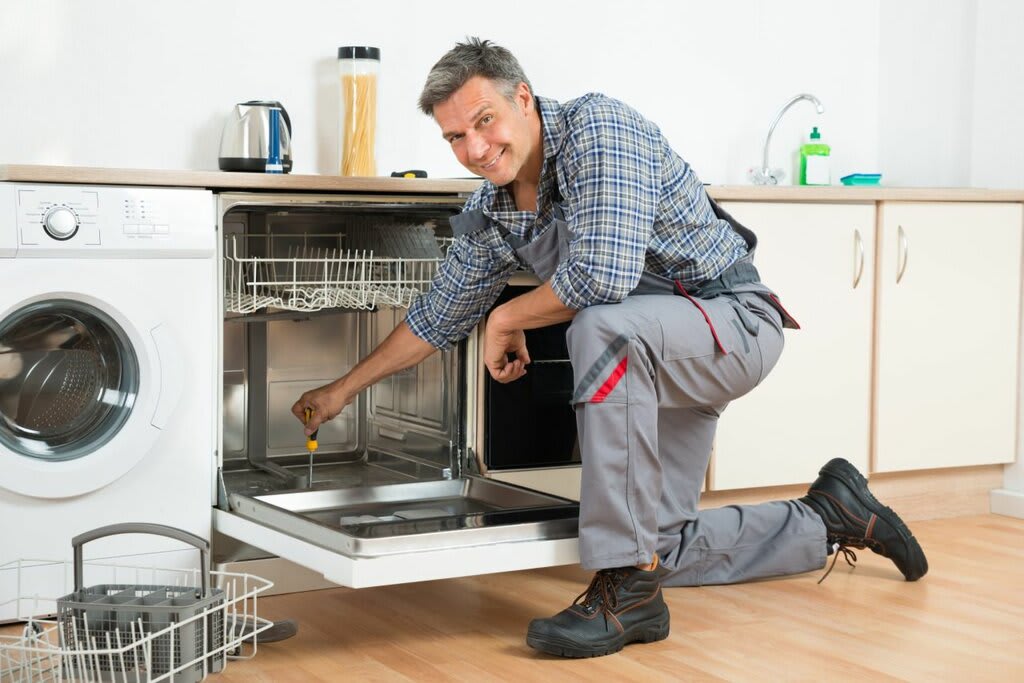The Ultimate Overview to Comprehending Appliance Repair Service at Home
When your fridge quits cooling down or your oven refuses to warm, it can really feel overwhelming. Understanding appliance repair work in your home can conserve you money and time. You'll find out to recognize signs and symptoms, make use of necessary tools, and follow a methodical troubleshooting procedure. Before you start, there are vital security precautions you need to take into account. What are one of the most usual troubles, and how can you fix them? Let's discover the basics.
Usual Home Appliance Issues and Their Signs
When your appliances begin breaking down, it's important to identify the indicators beforehand. Overlooking them can cause larger issues and costly fixings. For circumstances, if your refrigerator isn't cooling effectively, you could observe warm places or condensation creating. This could show a stopping working compressor or a blocked vent.Your dishwasher might show troubles with unclean meals or unusual noises during cycles. If you hear grinding or clanking, it's time to investigate.A washing maker that won't spin or drain pipes can leave you with soaked laundry, recommending a blocked drainpipe or a malfunctioning pump.Lastly, if your oven's temperature level seems off or it takes forever to pre-heat, you could be taking care of a malfunctioning thermostat. By remaining alert to these signs and symptoms, you can attend to issues before they rise into significant repair work.
Important Devices for Appliance Fixing
When you're taking on appliance repairs at home, having the right tools is essential. Basic hand tools like screwdrivers and pliers will certainly aid you dismantle and deal with numerous devices, while electric screening tools assure you're functioning securely with electrical wiring. Let's go over what you need to obtain begun on your repair service trip.
Fundamental Hand Tools
Having the right tools is essential for effective device fixing in your home. Start with a dependable screwdriver collection, including both flathead and Phillips kinds, as screws are typical in home appliance assembly. Pliers are additionally crucial; they aid with gripping, turning, and reducing wires or tiny elements. A pair of needle-nose pliers can get to difficult situations quickly. You'll need an excellent adjustable wrench for tightening up or loosening up nuts and bolts. An energy blade is convenient for reducing through product packaging or insulation. Lastly, do not fail to remember a durable workbench or surface area to safely organize your devices and parts. With these standard hand tools, you'll be well-prepared to take on most appliance repairs that come your means.
Electrical Screening Tools
Alongside standard hand tools, electrical screening gadgets play a necessary role in device repair service. These tools assist you detect electrical concerns and guarantee devices work safely. A multimeter is essential; it determines voltage, present, and resistance, permitting you to determine issues rapidly. A non-contact voltage tester is one more must-have, allowing you spot online cords without making direct get in touch with, boosting your safety and security. Clamp meters are wonderful for measuring present circulation in cords without separating them, saving you time and effort. Furthermore, circuit testers can promptly examine if electrical outlets are operating properly. By utilizing these gadgets, you'll simplify your troubleshooting procedure and boost your repair skills, making home appliance maintenance a great deal much easier.
Step-by-Step Overview to Diagnosing Home Appliance Issues
When your device breaks down, it can be frustrating, but diagnosing the problem doesn't have to be overwhelming. You'll learn to identify typical issues and apply efficient troubleshooting methods. Let's walk through the steps to get your appliance back in working order.
Common Device Problems

Troubleshooting Techniques Discussed

Fixing Significant Kitchen Area Home Appliances: A Closer Look
Have you ever asked yourself exactly how to deal with typical issues with your cooking area home appliances? Fixing significant kitchen area appliances like fridges, ovens, and dish washers can be much easier than you think. Begin by identifying the issue-- whether it's a fridge not cooling or a stove that will not heat. Commonly, a simple reset or examining the power source can solve the issue.For refrigerators, clean the condenser coils and examine the door seals. If your oven's not heating, inspect the burner and thermostat. Dishwashers could just need a clean filter or a reset to obtain them back at work. Constantly disconnect the appliance before diving right into repairs to assure your safety.Don' t fail to remember to get in touch with the individual guidebook for specific repairing suggestions associated with your model. With a little bit of persistence and the original site right tools, you can confidently take on device repair work and conserve money in the procedure!

Repairing Laundry Equipments: Tips and Techniques
When your laundry devices begin breaking down, it can feel frustrating, yet repairing them doesn't have to be a trouble. Beginning by checking the power supply. Validate the home appliance is connected in and the outlet is functioning. Next off, examine the door or cover button; a defective button can stop the equipment from operating.For washers, if it's not spinning, examine for unbalanced lots. Redistributing the garments could solve the concern. If your dryer isn't heating, clean the lint filter and examine the vent for blockages.Listen for uncommon sounds; they can show a problem. If your home appliance is leaking, inspect the pipes for cracks or loose connections. Document any error codes shown on electronic screens, as they can guide you in determining the problem. Lastly, get in touch with the individual guidebook for specific troubleshooting tips related to your design.
Safety And Security Preventative Measures to Take Throughout Repairs
Before you start any appliance repairs, it's vital to focus on safety and security to avoid crashes or injuries. Unplug the home appliance or turn off the circuit breaker to guarantee no power reaches it while you function. Usage shielded devices to lessen the threat of electric shock. Wear security goggles and gloves to safeguard yourself from sharp edges or debris (Dependable Refrigeration & Appliance Repair Service Washer repair near me).Make particular your work space is neat and well-lit, so you can see what you're doing. Keep kids and pets far from the area to avoid disturbances and prospective risks. If you're dealing with gas devices, be extra careful; check for leaks prior to proceeding.Take your time, and do not rush via repair work. If you feel unclear about any type of action, it's far better to stop and research than to think. Adhering to these safety measures will certainly assist develop a safer atmosphere for your do it yourself home appliance repair work job
When to Call a Specialist for Help
Exactly how do you know if it's time to call an expert for device repairs? If you've attempted standard troubleshooting without success, it's a clear sign. For example, if your device still will not start or reveals uncommon noises after resetting it, don't be reluctant to look for expert help.When you notice leakages, smoke, or burning scents, prioritize safety and call a pro quickly. These problems can result in more significant damages or posture threats to your home.Also, if your device is under service warranty, contacting a professional is typically the most effective path. They can ensure that repair services will not nullify your guarantee, saving you money in the lengthy run.Finally, if you're unclear or awkward with intricate repair services, it's smart to leave it to the professionals. Remember, tackling complicated concerns without the appropriate expertise can bring about pricey errors. Count on a professional when in uncertainty!
Often Asked Concerns
How Can I Prevent Device Issues in the Future?
To avoid appliance troubles in the future, you must carry out normal i was reading this upkeep, check for damage, tidy filters, and prevent overloading. Staying positive will help expand their lifespan and keep them running efficiently.
What Are one of the most Usual DIY Appliance Fixing Mistakes?
You might ignore safety preventative measures, miss fixing actions, or use wrong devices when attempting do it yourself appliance repair work. Hurrying the procedure or neglecting maker standards can bring about more significant issues and costly errors. Stay individual and informed!
How Do I Know if a Component Requirements Substitute?
You can tell if a part requires replacement by checking for unusual sounds, leakages, or inconsistent performance. If the device battles to operate properly or reveals noticeable damage, it's likely time for a substitute.
Can I Use Generic Parts for Device Repairs?
Yes, you can utilize common parts for appliance fixings, but identify they work - Washer dryer repair service Dependable his explanation Refrigeration. Common components might save you cash, yet they can impact performance or longevity, so weigh your options meticulously before making a decision
What Warranties Cover Appliance Repairs?
Most home appliance warranties cover repair services for manufacturing defects, but they often omit damages from abuse. Examine your service warranty terms very carefully, as some may require using licensed service technicians and original parts for insurance coverage to stay legitimate.